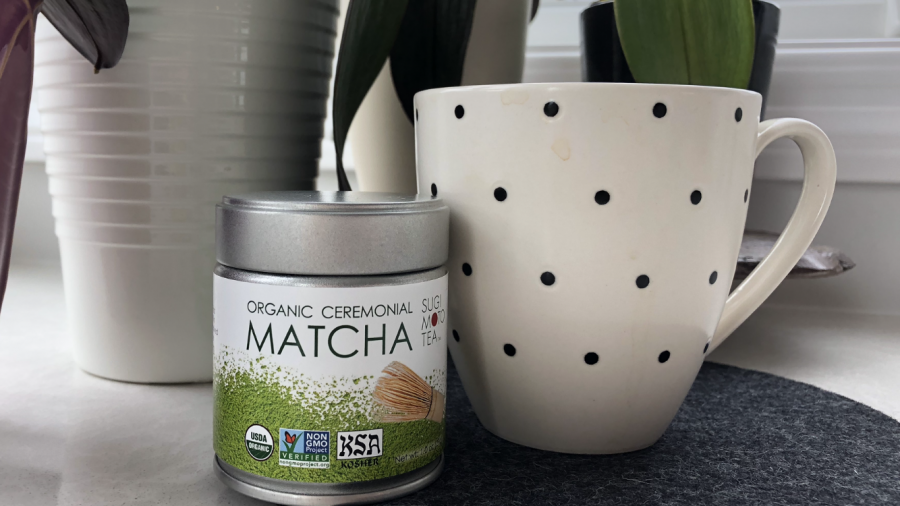Is Matcha the New Coffee?
February 10, 2020
In the modern world of wellness, the art of destressing has been perfected to – well, an art, and the art of being stressed is practically a lifestyle. Caffeine, usually in the form of a caramel frappuccino, two extra pumps of caramel, or piping hot chai tea lattes, extra whipped cream please, is an integral part of this busy life. But is coffee, that delicious, highly coveted beverage that powers so many people through their day, really the healthiest option? Wellness gurus have of late been weighing the merits of an espresso shot against a mug of matcha tea.
The green Japanese superfood is a green tea that has been ground into a fine powder, and the growing process of matcha is different than that of other green teas. The process leaves matcha with a high caffeine and nutrient content. Matcha contains L-theanine, an amino acid that helps the human body to process caffeine from matcha differently than, say, coffee. Matcha is high in caffeine, but it provides a slower, less jittery, and more sustained energy boost. Those who rely on matcha will find that they avoid the dreaded 3 p.m. crash that comes from morning coffee.
Matcha is also high in antioxidants, which help prevent disease and aging. One of these antioxidants is catechin, which contains potent cancer-fighting properties. It also helps to boost the metabolism, which in effect aids in burning fat, as a faster metabolism means that the human body burns calories at a greater rate.
Another problem with coffee that matcha has appeared to solve is the problem of sleep. Those who consume coffee at the wrong times, or in overly large amounts, will find that the caffeine exacerbates stress and anxiety, and disrupts sleep. Because matcha contains the amino acid L-theanine, it helps to lower blood pressure and resting heart rate, and the type of wakefulness it gives is a relaxed, aware wakefulness, not the jittery type that coffee provides.
Those that are used to drinking coffee, however, might find it hard to reduce their caffeine intake. Which matcha’s caffeine content is much higher than other teas, it does contain less caffeine than coffee. For some hardcore coffee drinkers, caffeine content in non-negotiatable. Sophomore Mariam Hagh says “I love coffee for the taste and the caffeine. I will never consider scaling back how much I drink or – god forbid – replacing it.”
Matcha is best consumed a few hours after waking up, when the body’s natural cortisol levels are beginning to dip from time spent awake. It is also best consumed in its pure form, but for those who find the earthy taste hard to swallow, try a matcha latte with some form of milk.


